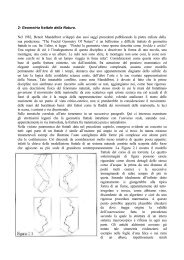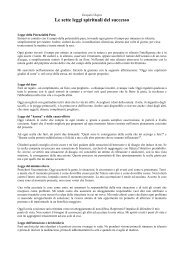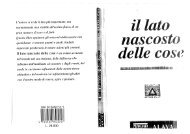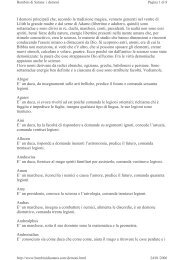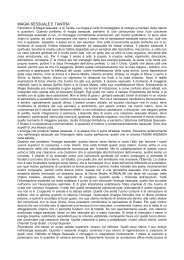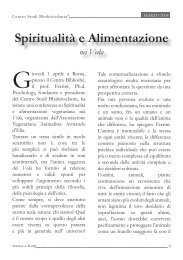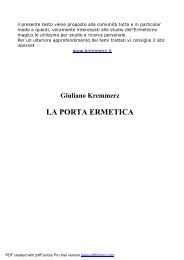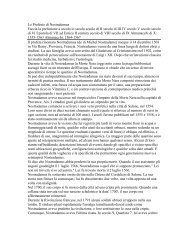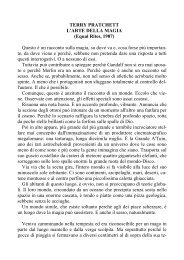184 ~ TALIBANance of the Taliban's airforce and airport operations, road building, electricitysupply in Kandahar and salaries. Pakistan also facilitated the Taliban'sown purchases of arms and ammunition from Ukraine and EasternEurope. The money given for salaries was seldom used for that purposeand went directly into the war effort. Taliban officials in Kabul were notpaid for months at a time. Officially Pakistan denied it was supporting theTaliban.This flow of aid was a legacy from the past. During the 1980s the ISIhad handled the billions of US dollars which had poured in from theWest and Arab states to help the Mujaheddin. With encouragement andtechnical support from the CIA, that money had also been used to carryout an enormous expansion of the ISI. The ISI inducted hundreds of armyofficers to monitor not just Afghanistan, but India and all of Pakistan'sforeign intelligence as well as domestic politics, the economy, the mediaand every aspect of social and cultural life in the country.The CIA provided the latest technology, including equipment thatenabled the ISI to monitor every telephone call in the country. The ISIbecame the eyes and ears of President Zia's military regime and by 1989it was the most powerful political and foreign policy force in Pakistan,repeatedly overriding later civilian governments and parliament in policy Iareas it concluded were critical to the country's national security interests. |Primarily those areas were India and Afghanistan.Through the 1990s the ISI tried to maintain its exclusive grip on Pakistan'sAfghan policy. However, the end of the Cold War deprived the ISIof its funds and due to Pakistan's severe economic crisis, its secret budgetwas drastically cut. More significantly the ISI's dwindling resources werenow directed towards another war of attrition - this one for the heartsand minds of the Kashmiri people who had risen up in revolt againstIndia in 1989.During Prime Minister Benazir Bhutto's second term of office (1993-]96), the retired Interior Minister General Naseerullah Babar promotedthe Taliban. He wanted to free Afghan policy from the ISI. Both Bhutto |and Babar were deeply suspicious of the ISI's power and resources, whichit had used to fuel discontent against Bhutto in her first term in office,leading to her removal in 1990. Moreover, the ISI was initially doubtfulabout the Taliban's potential as it was still wedded to backing GulbuddinHikmetyar and had few funds to back a movement of Afghan students.Babar 'civilianized' support to the Taliban. He created an Afghan TradeDevelopment Cell in the Interior Ministry, which ostensibly had the taskof co-ordinating efforts to facilitate a trade route to Central Asia -although its principal task was to provide logistical backing for the Taliban,not from secret funds but from the budgets of government ministries.Babar ordered Pakistan Telecommunications to set up a telephone net-MASTER OR VICTIM: PAKISTAN'S AFGHAN WAR 185work for the Taliban, which became part of the Pakistan telephone grid.Kandahar could be dialled from anywhere in Pakistan as a domestic callusing the prefix 081 - the same as Quetta's prefix. Engineers from thePublic Works Department and the Water and Power DevelopmentAuthority carried out road repairs and provided an electricity supply toKandahar city. The paramilitary Frontier Corps, directly under the controlof Babar, helped the Taliban set up an internal wireless network for theircommanders. Pakistan International Airlines (PIA) and the Civil AviationAuthority sent in technicans to repair Kandahar airport and thefighter jets and helicopters the Taliban had captured. Radio Pakistan providedtechnical support to Radio Afghanistan, now renamed RadioShariat.After the Taliban capture of Herat in 1995, Pakistani efforts intensified.In January 1996 the Director General of the Afghan Trade DevelopmentCell travelled by road from Quetta to Turkmenistan accompanied by officialsfrom Civil Aviation, Pakistan Telecom, PIA, Pakistan Railways,Radio Pakistan and the National Bank of Pakistan. Ministries and governmentcorporations took on further projects to help the Taliban withbudgets that were supposedly for developing Pakistan's economy. 2Despite these efforts to help and control the Taliban, they werenobody's puppets and they resisted every attempt by Islamabad to pulltheir strings. Throughout Afghan history no outsider has been able tomanipulate the Afghans, something the British and the Soviets learnt totheir cost. Pakistan, it appeared, had learnt no lessons from history whileit still lived in the past, when CIA and Saudi funding had given Pakistanthe power to dominate the course of the jihad. Moreover, the Taliban'ssocial, economic and political links to Pakistan's Pashtun borderlandswere immense, forged through two decades of war and life as refugees inPakistan. The Taliban were bom in Pakistani refugee camps, educated inPakistani madrassas and learnt their fighting skills from Mujaheddin partiesbased in Pakistan. Their families carried Pakistani identity cards.The Taliban's deep connections to Pakistani state institutions, politicalparties, Islamic groups, the madrassa network, the drugs mafia and businessand transport groups came at a time when Pakistan's power structure wasunravelling and fragmented. This suited the Taliban who were notbeholden to any single Pakistani lobby such as the ISI. Whereas in the1980s Mujaheddin leaders had exclusive relationships with the ISI andthe Jamaat-e-Islami, they had no links with other political and economiclobbies. In contrast the Taliban had access to more influential lobbies andgroups in Pakistan than most Pakistanis.This unprecedented access enabled the Taliban to play off one lobbyagainst another and extend their influence in Pakistan even furthur. Attimes they would defy the ISI by enlisting the help of government minis-
186 ~ TALIBANters or the transport mafia. At other times they would defy the federalgovernment by gaining support from the provincial governments in Baluchistanand the NWFP. As the Taliban movement expanded it becameincreasingly unclear as to who was driving whom. Pakistan, rather thanbeing the master of the Taliban, was instead becoming its victim.Pakistan's security perceptions were initially shaped by Afghanistan'sterritorial claims on parts of the NWFP and Baluchistan and there wereborder clashes between the two states in the 1950s and 1960s. Afghanistaninsisted that Pakistan's Pashtun tribal belt should be allowed to opteither for independence or join Pakistan or Afghanistan. Diplomatic relationswere severed twice, in 1955 and 1962, as Kabul advocated a 'GreaterPashtunistan', which was supported by left-wing Pakistani Pashtuns. TheZia regime saw the Aghan jihad as a means to end these claims for ever,by ensuring that a pliable pro-Pakistan Pashtun Mujaheddin governmentcame to power in Kabul.Military strategists argued that this would give Pakistan 'strategic depth'against its primary enemy India. Pakistan's elongated geography, the lackof space, depth and a hinterland denied its armed forces the ability tofight a prolonged war with India. In the 1990s an addition to this wasthat a friendly Afghanistan would give Kashmiri militants a base fromwhere they could be trained, funded and armed.In 1992-93, under Indian pressure, the USA had come close to declaringPakistan a state sponsor of terrorism, as Kashmiri militants based inPakistan carried out guerrilla attacks in Indian Kashmir. Pakistan tried toresolve this problem in 1993 by moving many of the Kashmiri groups'bases to eastern Afghanistan and paying the Jalalabad Shura and later theTaliban to take them under their protection. The government also privatizedits support to the Kashmir Mujaheddin, by making Islamic partiesresponsible for their training and funding. Bin Laden was encouraged tojoin the Taliban in 1996, as he too was sponsoring bases for Kashmirimilitants in Khost.Increasingly, the Kashmir issue became the prime mover behind Pakistan'sAfghan policy and its support to the Taliban. The Taliban exploitedthis adroitly, refusing to accept other Pakistani demands knowing thatIslamabad could deny them nothing, as long as they provided bases forKashmiri and Pakistani militants. 'We support the jihad in Kashmir,' saidMullah Omar in 1998. 'It is also true that some Afghans are fightingagainst the Indian occupation forces in Kashmir. But these Afghans havegone on their own,' he added. 3To many, the concept of 'strategic depth' was riddled with fallacies andmisconceptions as it ignored obvious ground realities that politicalstability at home, economic development, wider literacy and friendly relationswith neighbours ensured greater national security than imaginaryMASTER OR VICTIM: PAKISTAN'S AFGHAN WAR 187mirages of strategic depth in the Afghan mountains. 'The attainment ofstrategic depth has been a prime objective of Pakistan's Afghanistanpolicy since General Zia ul Haq. In military thought it is a non-concept,unless one is referring to a hard-to-reach place where a defeated armymight safely cocoon,' wrote Pakistani scholar Eqbal Ahmad. 'The outcomeis a country caught in an iron web of wrong assumptions, maginotic[sic] concepts, failed policies, fixed postures and sectarian violence. Farfrom improving it, a Taliban victory is likely to augment Pakistan's politicaland strategic predicament,' he added. 4The military assumed that the Taliban would recognize the DurandLine — the disputed boundary line between the two countries created bythe British and which no Afghan regime has recognized. The military alsoassumed that the Taliban would curb Pashtun nationalism in the NWFPand provide an outlet for Pakistan's Islamic radicals, thus forestalling anIslamic movement at home. In fact just the opposite occurred. The Talibanrefused to recognize the Durand Line or drop Afghanistan's claims toparts of the NWFP. The Taliban fostered Pashtun nationalism, albeit ofan Islamic character and it began to affect Pakistani Pashtuns.Worse still, the Taliban gave sanctuary and armed the most violentSunni extremist groups in Pakistan, who killed Pakistani Shias, wantedPakistan declared a Sunni state and advocated the overthrow of the rulingelite through an Islamic revolution. 'The apparent victor, Pakistan, couldpay dearly for its success. The triumph of the Taliban has virtually eliminatedthe border between Pakistan and Afghanistan. On both sides, Pashtuntribes are slipping towards fundamentalism and becoming increasinglyimplicated in drug trafficking. They are gaining autonomy, already smallfundamentalist tribal emirates are appearing on Pakistani soil. The defacto absorption of Afghanistan will accentuate centrifugal tendencieswithin Pakistan,' predicted Olivier Roy in 1997. 5 In fact the backwashfrom Afghanistan was leading to the 'Talibanization' of Pakistan. TheTaliban were not providing strategic depth to Pakistan, but Pakistan wasproviding strategic depth to the Taliban.Pakistan became a victim not only of its strategic vision, but of its ownintelligence agencies. The ISPs micro-management of the Afghan jihadwas only possible because under a military regime and with lavish fundingfrom abroad, the ISI was able to subdue political opposition at home. Ziaand the ISI had the power to formulate Afghan policy and implement it,something which no other intelligence agency, not even the CIA, hadthe power to do. This gave the ISI enormous unity of purpose and scopefor operations. The ISI then faced no independent powerful lobbies orpolitical rivals, as in the Taliban era, when they had to compete with anarray of Pakistani lobbies which independently supported the Taliban andhad their own agendas.
- Page 1 and 2:
YALE NOTA BENE"The broader storyher
- Page 3 and 4:
TalibanMilitant Islam,Oil and Funda
- Page 5 and 6:
Vi ~ CONTENTSChapter 8A Vanished Ge
- Page 7 and 8:
AFGHANISTAN•^ UZBEKISTAN J TAJIKI
- Page 9 and 10:
2 ~ TALIBANaccounts for some 40 per
- Page 11 and 12:
"6 ~ TALIBANgas riches of landlocke
- Page 13 and 14:
10 ~ TALIBANgious mix that was to m
- Page 15 and 16:
Part 1History of theTaliban Movemen
- Page 17 and 18:
18 ~ ISLAM OIL AND THE NEW GREAT GA
- Page 19 and 20:
22 ~ ISLAM OIL AND THE NEW GREAT GA
- Page 21 and 22:
26 ~ ISLAM OIL AND THE NEW GREAT GA
- Page 23 and 24:
30 ~ ISLAM OIL AND THE NEW GREAT GA
- Page 25 and 26:
34 TALIBANKabul- Hikmetyar had alli
- Page 27 and 28:
38 ~ TALIBANrHERAT 1995: GOD'S INVI
- Page 29 and 30:
42 ~ TALIBANdo manage to take Kabul
- Page 31 and 32:
J46 ~ TALIBANgreater weight to UN e
- Page 33 and 34:
50 ~ TALIBANas they hung from steel
- Page 35 and 36:
54 ~ TALIBANthey would help rearm t
- Page 37 and 38:
58 TALIBANGul Mohammed Pahlawan, Gh
- Page 39 and 40:
62 TALIBAN2,500 Taliban, who had re
- Page 41 and 42:
66 TALIBANshould throw all aid agen
- Page 43 and 44:
70 ~ TALIBANyears of battle and hel
- Page 45 and 46:
74 ~ TALIBANThousands of Hazaras we
- Page 47 and 48:
78 TALIBANhas become a plague,' sai
- Page 49 and 50: NEW STYLE FUNDAMENTALISM OF THE TAL
- Page 51 and 52: 86 TALIBANsity students - Hikmetyar
- Page 53 and 54: 90 TALIBANSharia was heavily influe
- Page 55 and 56: 94 TALIBANinflamed the debate in th
- Page 57 and 58: 98 TALIBANizing factor of Islam, it
- Page 59 and 60: 102 TALIBANadministrations made the
- Page 61 and 62: 106 ~ TAUBANfrom working, but it no
- Page 63 and 64: TALIBANUniversity, she held down a
- Page 65 and 66: 114 TALIBAN A VANISHED GENDER 115Ta
- Page 67 and 68: 118 TALIBANUS$1,300 - a small fortu
- Page 69 and 70: 122 TALIBANper cent of the total Pa
- Page 71 and 72: 126 TALIBANequipment, no electricit
- Page 73 and 74: 130 ~ TALIBANfight with the Mujahed
- Page 75 and 76: 134TALIBANAugust 1996 noted that Bi
- Page 77 and 78: 138 ~ TALIBANwho were using the Kho
- Page 79 and 80: 11DICTATORS AND OILBARONS: THE TALI
- Page 81 and 82: 146 TALIBAN DICTATORS AND OIL BARON
- Page 83 and 84: 150 — TALIBANgrowth of beards and
- Page 85 and 86: 154TALIBAN1998 when international o
- Page 87 and 88: 158 ~ TALIBANaround Afghanistan? Af
- Page 89 and 90: 162 TALIBAN ROMANCING THE TALIBAN 1
- Page 91 and 92: 166 TALIBAN ROMANCING THE TALIBAN 1
- Page 93 and 94: ROMANCING THE TALIBAN 2: 1997-99 17
- Page 95 and 96: 174 — TALIBANnon-Russian pipeline
- Page 97 and 98: 178 — TALIBANROMANCING THE TALIBA
- Page 99: 182 ~ TALIBANApril 1999. 'The US ha
- Page 103 and 104: 190 ~ TALIBANThis Wild West of free
- Page 105 and 106: 194 ~ TALIBANgovernance. Pakistani
- Page 107 and 108: 198 TALIBAN SHIA VERSUS SUNNI: IRAN
- Page 109 and 110: 202 TALIBAN SHIA VERSUS SUNNI: IRAN
- Page 111 and 112: 206 — TALIBANin Afghanistan - to
- Page 113 and 114: 210 — TALIBANand antagonism. The
- Page 115 and 116: 214 ~ TALIBANdrawn since 1996 - a P
- Page 117 and 118: 218 ~ TALIBANated and severely puni
- Page 119 and 120: Origins of Members of the Taliban M
- Page 121 and 122: APPENDIX 3 ~ 227Appendix 3A CHRONOL
- Page 123 and 124: 230 ~ TALIBANgraves near Shebarghan
- Page 125 and 126: 234 ~ TALIBAN8 June. US FBI places
- Page 127 and 128: 238 ~ TALIBAN1995 January16 MarchAp
- Page 129 and 130: 242 ~ TALIBANJune21 August10 Septem
- Page 131 and 132: 246 ~ TALIBANDupree, Nancy Hatch, A
- Page 133 and 134: 250 ~ NOTESChapter 31 Interview wit
- Page 135 and 136: 254 ~ NOTESmuddin, Religious Police
- Page 137 and 138: 258 NOTES13. The Japanese company M
- Page 139 and 140: 262 ~ NOTES28. Waxman, Sharon, 'A c
- Page 141 and 142: Abbas, Mulla Mohammed 22,61,100Abda
- Page 143 and 144: INDEX - 270Hazaras (continued)burea
- Page 145 and 146: INDEX ~ 274nF»r\/FaliViar» milita
- Page 147: INDEX ~ 278Talibans (continued)Sunn




